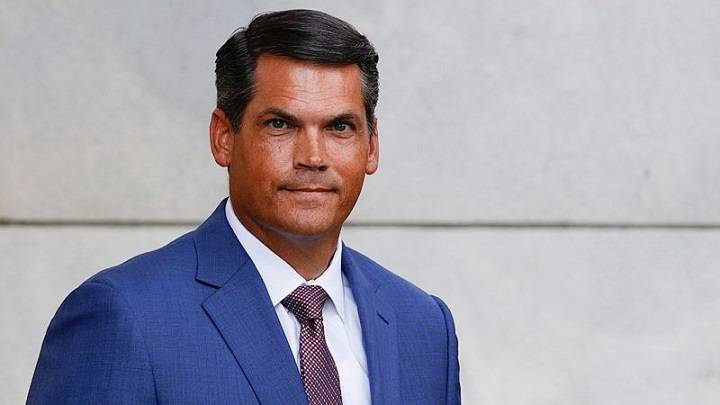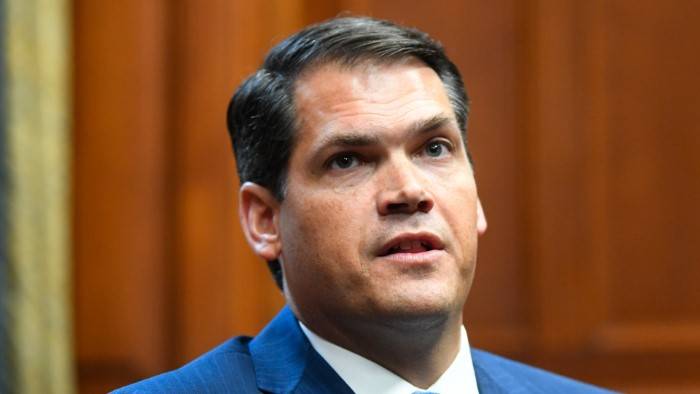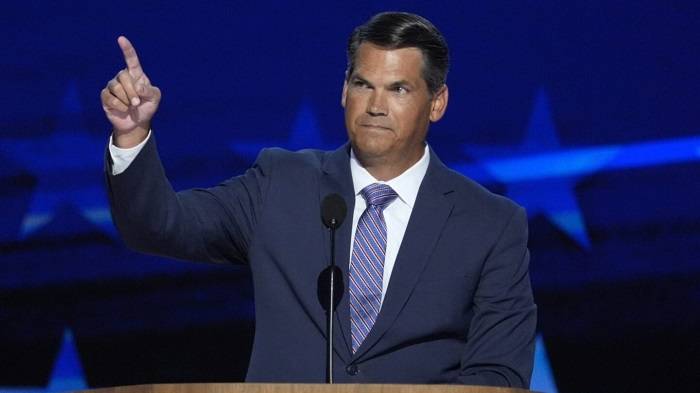Geoff Duncan is a notable figure in the political landscape of the United States, particularly known for his contributions as the Lieutenant Governor of Georgia. Duncan’s tenure has been marked by strategic initiatives aimed at enhancing state governance, promoting economic development, and fostering bipartisan cooperation. This comprehensive guide explores the strategies employed by Geoff Duncan, his performance in office, and the benefits that have resulted from his leadership.
Background and Political Career of Geoff Duncan
Geoff Duncan was born on April 1, 1975, in Atlanta, Georgia. Before entering politics, he pursued a career in professional baseball and later became a successful entrepreneur, co-founding several healthcare companies. His background in sports and business gave him a unique perspective on leadership, teamwork, and problem-solving, which he carried into his political career.
Duncan entered politics in 2013 when he was elected to the Georgia House of Representatives. He quickly gained a reputation for his innovative approach to governance and his ability to work across party lines. In 2018, he was elected as Georgia’s Lieutenant Governor, a position he has used to advocate for various reforms, including healthcare improvements, education advancements, and economic development.
Key Strategies Implemented by Geoff Duncan
- Healthcare Reform and Innovation
One of Geoff Duncan’s primary strategies has been healthcare reform. Understanding the complexities and inefficiencies within the healthcare system, Duncan has focused on initiatives that increase access to care while reducing costs. His strategies include promoting telemedicine, supporting mental health services, and enhancing rural healthcare access. Duncan’s approach often involves leveraging technology to improve healthcare delivery and working with both public and private sectors to innovate solutions. - Economic Development and Job Creation
Duncan has also been a strong advocate for economic development. His strategy centers around making Georgia an attractive destination for businesses and industries. This includes tax incentives for businesses, investment in infrastructure, and support for small businesses and startups. By fostering a pro-business environment, Duncan aims to create jobs and stimulate economic growth throughout the state. - Educational Reforms and Workforce Development
Recognizing the importance of education in economic competitiveness, Duncan has implemented several educational reforms aimed at improving the quality of education and aligning educational outcomes with the needs of the modern workforce. This includes expanding access to STEM (Science, Technology, Engineering, and Mathematics) education, supporting vocational training programs, and increasing funding for public schools. - Bipartisan Cooperation and Political Reform
Duncan has positioned himself as a moderate Republican willing to work with Democrats to achieve common goals. His strategy emphasizes the importance of bipartisanship in state governance, focusing on collaboration over conflict. He has been a vocal critic of extreme partisanship and has worked to build coalitions that support pragmatic solutions to the state’s challenges.
Performance in Office
- Healthcare Initiatives
Under Duncan’s leadership, Georgia has seen significant strides in healthcare innovation. The expansion of telehealth services, particularly during the COVID-19 pandemic, has been one of his notable achievements. This initiative has provided Georgians, especially those in rural areas, with greater access to medical care. Additionally, his support for mental health reforms has led to increased funding and resources for mental health services statewide. - Economic Growth
Duncan’s focus on economic development has contributed to Georgia’s robust economic performance. The state has attracted several major corporations, thanks in part to the tax incentives and business-friendly policies Duncan has championed. Unemployment rates have remained relatively low, and job creation has been strong, reflecting the success of Duncan’s economic strategies. - Education and Workforce Development
Duncan’s educational reforms have shown promising results. There has been an increase in STEM program enrollment and a rise in graduation rates, indicating that his focus on aligning education with workforce needs is bearing fruit. The introduction of new vocational training programs has also helped equip students with the skills necessary to succeed in a rapidly changing job market. - Bipartisan Efforts and Political Climate
Duncan’s efforts to foster bipartisan cooperation have had a positive impact on Georgia’s political climate. While partisanship remains a challenge, his approach has helped reduce some of the polarization in the state government. His willingness to work with members of both parties has enabled the passage of several important pieces of legislation, demonstrating the effectiveness of his collaborative approach.
Benefits of Geoff Duncan’s Leadership
- Improved Healthcare Access and Innovation
The benefits of Duncan’s healthcare initiatives are clear. By expanding telehealth services and supporting mental health reforms, Georgians have greater access to necessary care, which has been particularly beneficial for those in rural areas. The focus on innovation has also helped to control healthcare costs, making healthcare more affordable for residents. - Economic Resilience and Growth
The economic strategies employed by Duncan have made Georgia a more competitive state. The business-friendly environment he has fostered has not only attracted new businesses but also encouraged existing ones to expand. This has led to job creation and economic growth, making Georgia one of the leading states in terms of economic performance. - Enhanced Educational Outcomes
Duncan’s educational reforms have prepared students better for the workforce, thereby enhancing the state’s overall competitiveness. The focus on STEM and vocational training aligns with the demands of modern industries, ensuring that Georgia’s workforce remains skilled and adaptable. - A More Collaborative Political Environment
Duncan’s emphasis on bipartisanship has helped to reduce some of the divisiveness in Georgia politics. His leadership has shown that it is possible to govern effectively while working with members of both parties, which has led to a more productive legislative environment.
Challenges and Criticisms
- Partisan Resistance
Despite his efforts to promote bipartisanship, Duncan has faced resistance from more partisan members of both parties. Some critics argue that his moderate stance does not go far enough in advancing the agenda of his party, while others feel that he compromises too much with the opposition. - Healthcare System Challenges
While Duncan has made strides in healthcare reform, challenges remain, particularly regarding funding and the sustainability of some of his initiatives. Expanding access to care is an ongoing challenge, and some critics argue that more comprehensive reforms are needed to address systemic issues. - Economic Inequality
While Georgia’s economy has grown, not all residents have benefited equally. Some critics point to persistent economic inequality and argue that Duncan’s policies have primarily benefited large corporations rather than small businesses and lower-income residents. - Education Reform Implementation
Although educational outcomes have improved, some argue that the pace of reform has been too slow and that more needs to be done to address disparities in educational access and quality across different regions and demographic groups.
Future Directions and Potential Impact
- Expanding Healthcare Access
Looking ahead, Duncan is expected to continue focusing on expanding healthcare access, particularly in rural areas. Future strategies may include more partnerships with private healthcare providers and further investment in technology-driven solutions. - Strengthening Economic Development
Duncan’s future economic strategies are likely to focus on diversifying Georgia’s economy and ensuring sustainable growth. This may involve increased investment in renewable energy and technology sectors, as well as continued support for small businesses and startups. - Advancing Educational Reforms
In education, Duncan is likely to push for more comprehensive reforms to ensure that all students have access to high-quality education, regardless of their background or location. This may include increased funding for underserved schools and expanded access to vocational training programs. - Promoting Political Collaboration
Duncan will likely continue to promote bipartisanship and political reform, with a focus on reducing polarization and fostering a more cooperative political environment. His leadership in this area could serve as a model for other states seeking to overcome partisan gridlock.
Related Post:
Geoff Duncan’s tenure as Lieutenant Governor of Georgia has been marked by strategic initiatives aimed at improving healthcare, stimulating economic growth, enhancing education, and promoting bipartisan cooperation. While his strategies have yielded significant benefits, challenges remain, particularly in the areas of healthcare funding, economic inequality, and education reform. As Duncan continues to lead, his focus on innovation, collaboration, and pragmatic governance is likely to have a lasting impact on Georgia’s future. The benefits of his leadership are evident in the improved healthcare access, economic resilience, and enhanced educational outcomes that Georgians enjoy today.




